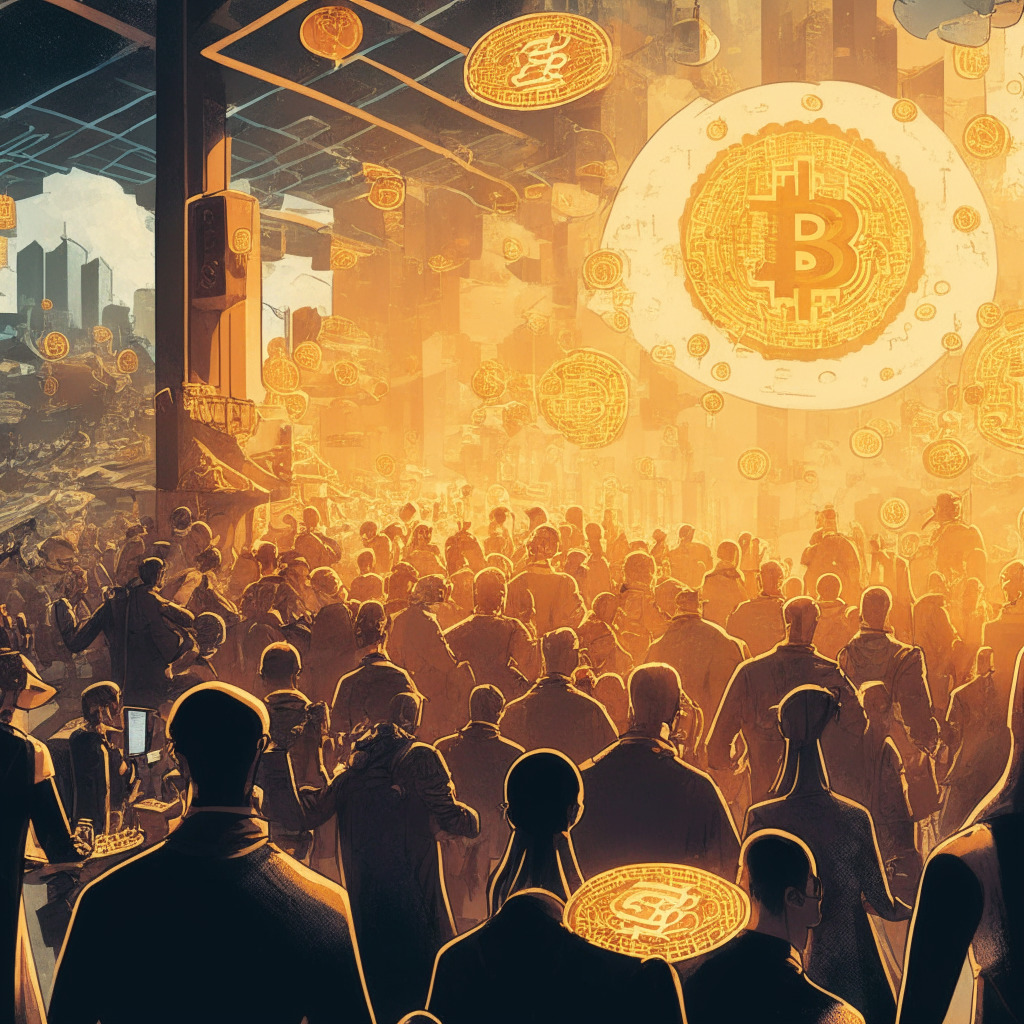The Bitcoin network has recently witnessed a significant surge in transaction fees, reminiscent of highs not seen since 2017. This spike in fees is reportedly due to the advent of the new “Ordinals” protocol, which has allowed for the creation of non-fungible tokens and implementation of other blockchain applications within the Bitcoin ecosystem. As BTC continues to explore various applications beyond its original purpose, developers are divided over whether these innovations should be celebrated or moderated.
One such critical voice is Ali Sherief, who argued that the Bitcoin system is being “abused” by the new forms of transactions clogging the blockchain. Sherief proposed an upgrade that would delete all transactions related to the new protocol, stating that “worthless tokens threaten the smooth and normal use of the Bitcoin network as a peer-to-peer digital currency.” Following the introduction of the BRC-20 token standard, an Ordinals-based project, various speculative memecoins and Ordinals transactions have mushroomed. Mainly, these additions have contributed to the blockchain’s congestion, resulting in increased transaction fees.
Given that the Bitcoin blockchain utilizes a limited amount of hard drive space for recording transactions, its settlement speed is limited to around seven transactions per second. Under these circumstances, users must compete for miners’ attention by offering higher transaction fees. Luke Dashjr, another proponent of transaction moderation, has taken matters into his own hands by developing a tool, “Ordisrespector,” which allows Bitcoin node runners to ignore the transactions they consider spam.
However, not everyone shares Sherief and Dashjr’s concerns. Jameson Lopp, co-founder of the Bitcoin custody solution Casa, argues that transactions should be deemed valid as long as users are willing to pay the required fees. He equates the critics’ stance with claiming that “any form of auction is a denial of service, and whoever wins is denying all of the losers of the auction.” Furthermore, Bitcoin billionaire Michael Saylor also supports the Ordinals protocol, particularly for its potential use cases beyond speculative tokens. He envisions a future where assets like stocks and ETFs trading on NASDAQ could be tokenized and held by individuals within the Bitcoin network, rather than centralized custodian services.
Indeed, companies have already started leveraging the BRC-20 standard for applications such as launching Stably USD (USD), Bitcoin’s first native US dollar stablecoin. As the community debates whether the expansion of Bitcoin’s applications is advantageous or detrimental to the network, it remains to be seen whether further innovations and protocols will have a lasting impact on its functionality and popularity.
Source: Cryptonews




